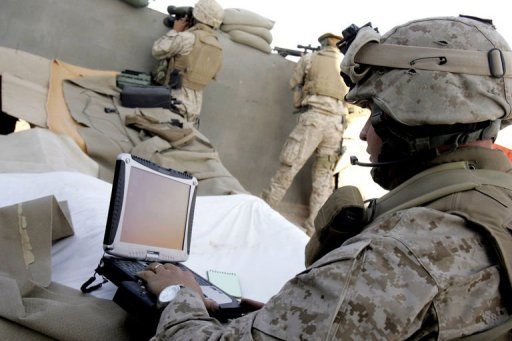The US military has made huge strides in hardening its computer networks against cyberattack but more remains to be done, the Pentagon’s top cyberwarrior said Wednesday.
“I would give us today probably a ‘C,’ going up,” General Keith Alexander said when asked during a House Armed Services Committee hearing to grade the ability of the Defense Department to defend its networks.
“The reason I say a ‘C’ is we are working extremely hard on building the hardening part of our networks,” said Alexander, head of the Pentagon’s Cyber Command and the top secret National Security Agency.
“I’d like to say an ‘A’ but I think it’s going to take some time to get to an ‘A’ and an ‘A’ is where I believe nobody can penetrate the network,” he said.
“We have made it extremely difficult for adversaries to get in and every day we improve that,” Alexander said, adding there had been “tremendous progress over the last two years.”
“When you look at the problems we had on our networks a few years ago to where we are today it’s a huge improvement,” he said.
Alexander and another witness, James Miller, the Pentagon’s principal deputy undersecretary for policy, were also asked what was being done to combat Islamic militant propaganda on the Internet.
“To my knowledge there’s no decision to block the radical propaganda,” the general said, adding that Cyber Command had not been told to do so.
“I think that’s a policy issue in terms of whether we choose to stem the flow of radical propaganda and how,” Alexander said. “Technically, Cyber Command could be one of the agencies given that mission.
“We have not been given that mission,” he said.
At the same time, “if we see this on US infrastructure and it’s wrong we can reach out through the FBI and ask that it be removed,” Alexander said. “And we have a high success rate getting that done.”
“We’re not reaching out and causing it to be removed globally,” he continued. “We can reach out and ask that it be removed globally and we’re having a pretty good success at doing that.”
Miller said dealing with such material on the Internet is a “recurring ongoing policy issue.”
“These issues need to be dealt with on a case-by-case basis,” he said, using “all the tools available to us, including diplomatic tools” and balancing “our desire to promote free speech and our requirement to protect our forces and our people.”










